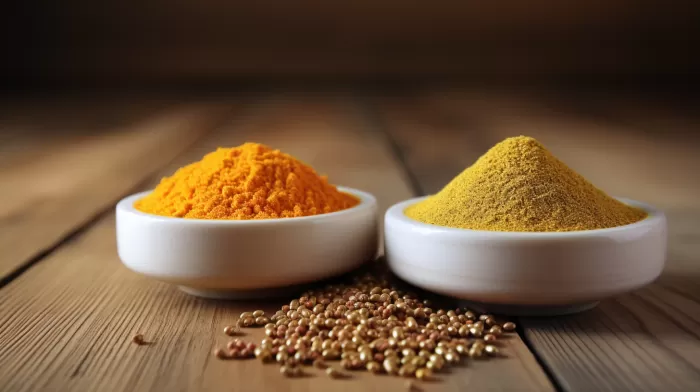Combining bee pollen and curcumin could pave the way to better prostate health. Whether used as a preventive measure or a natural remedy for an existing condition, these two natural substances offer a slew of benefits for men’s health, particularly when dealing with prostatitis, a painful inflammation of the prostate gland.
Understanding Bee Pollen’s Role in Prostate Health
Bee pollen, also known as Cernilton or Graminex pollen extract, promotes urinary tract health, offers anti-inflammatory effects, and functions as an antioxidant. Men taking bee pollen typically experience reductions of nocturia and diurnal frequency, and residual urine volume is significantly lessened.
Bee pollen boasts a myriad of health benefits, which can be a valuable natural treatment for prostatitis. It is known as effective in the management of prostatitis and Benign Prostatic Hyperplasia (BPH). Studies conducted worldwide for nearly 40 years report an overall 70% success rate in patients with BPH.
However, it is essential to note that not all bee pollen is the same. Men should look for reputable supplements containing Graminex. The quality of bee pollen extracts on the market can differ significantly due to methods of collection and pollen sources. The cernilton/Graminex pollen extract is the extract used in most scientific studies, with bases in rye pollen, corn pollen, and timothy pollen.
Curcumin’s Potential in Combating Prostatitis
Curcumin – an active ingredient found in turmeric – is another natural substance with benefits for prostate health. Recent studies indicated its effectiveness in combatting chronic, nonbacterial prostatitis. Curcumin reduced the effect of pro-inflammatory cytokines interleukin-8 and tumor necrosis factor-alpha in the blood and tissues.
Another study by a German research team evaluated curcumin’s effectiveness in preventing the spread (metastasis) of prostate cancer. The study showed that curcumin reduced the expression of two pro-inflammatory proteins and reduced metastases incidence.
Based on these findings, curcumin might help prevent prostate cancers and halt the spread of the disease. While curcumin is not a replacement for conventional medical practices, it can play a positive role in prevention and supplement other treatments under a doctor’s supervision. Other studies have explored the impact of curcumin on prostate cancer, with one finding that curcumin combined with phenethyl isothiocyanate (a substance found in cruciferous vegetables) might be useful in preventing and treating prostate cancer.
Taking Bee Pollen and Curcumin Safely
Before taking bee pollen, curcumin, or any supplement, be sure to consult your healthcare provider. Each person’s situation is different, and certain precautions must be taken. When taken at recommended doses, both bee pollen and curcumin are considered safe, but specific conditions may need to be addressed.
The standard dose of standardized curcumin powder is 400 mg to 600 mg, taken three times a day. Your healthcare professional may recommend more or less, depending on factors specific to your condition, size, and other factors. For example, since curcumin has been shown to lower blood sugar levels in some individuals, diabetics must be cautious, and following your doctor’s advice is critical. Other risks include stomach irritation and even ulcers in cases where curcumin has been taken for a long time.
In conclusion, bee pollen and curcumin have positive effects on men’s prostate health and can be valuable as a natural treatment for prostatitis. However, it is essential to consult a healthcare professional before starting any supplement regimen to avoid any potential risks or complications.



